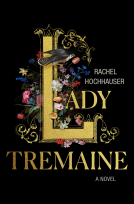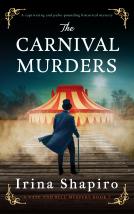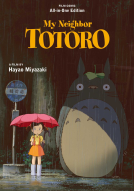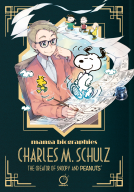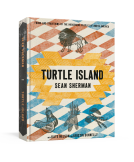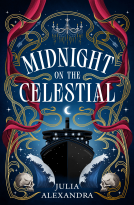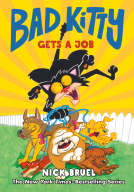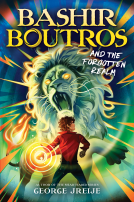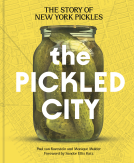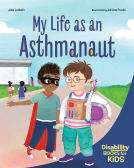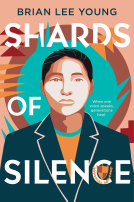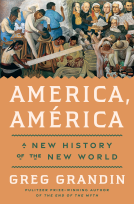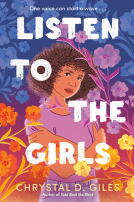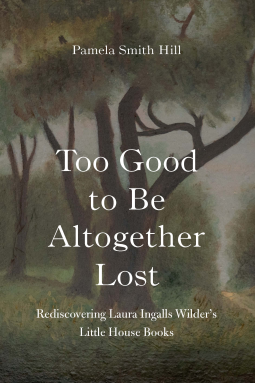
Too Good to Be Altogether Lost
Rediscovering Laura Ingalls Wilder's Little House Books
by Pamela Smith Hill
This title was previously available on NetGalley and is now archived.
Send NetGalley books directly to your Kindle or Kindle app
1
To read on a Kindle or Kindle app, please add kindle@netgalley.com as an approved email address to receive files in your Amazon account. Click here for step-by-step instructions.
2
Also find your Kindle email address within your Amazon account, and enter it here.
Pub Date Jul 01 2025 | Archive Date Jun 30 2025
Talking about this book? Use #TooGoodtoBeAltogetherLost #NetGalley. More hashtag tips!
Description
Named a 2025 Choice Outstanding Academic Title
Laura Ingalls Wilder, author of the well-known Little House series, wrote stories from her childhood because they were “too good to be altogether lost.” And those stories seemed far from being lost during the remainder of her lifetime and through most of the twentieth century. They were translated into dozens of languages; generations of children read them at school; and dedicated readers made pilgrimages to the settings of the Little House books. With the release of NBC’s Little House on the Prairie series in 1974, Wilder was well on her way to becoming an international literary superstar. Simultaneously, however, the novels themselves began to slip from view, replaced by an onslaught of assumptions and questions about Wilder’s values and politics and even about the books’ authenticity. From the 1980s, a slow but steady critical crescendo began to erode Wilder’s literary reputation.
In Too Good to Be Altogether Lost, Wilder expert Pamela Smith Hill dives back into the Little House books, closely examining Wilder’s text, her characters, and their stories. Hill reveals that these gritty, emotionally complex novels depict a realistic coming of age for a girl in the American West. This realism in Wilder’s novels, once perceived as a fatal flaw, can lead to essential discussions not only about the past but about the present—and the underlying racism young people encounter when reading today. Hill’s fresh approach to Wilder’s books, including surprising revelations about Wilder’s novel The First Four Years, shows how this author forever changed the literary landscape of children’s and young adult literature in ways that remain vital and relevant today.
Advance Praise
“In her third major study of Laura Ingalls Wilder’s work, Pamela Smith Hill distinguishes herself as the preeminent Wilder scholar of this generation. Eminently readable, meticulously researched, without catering to passion or prejudice, Too Good to Be Altogether Lost places Wilder and the Little House books firmly in the pantheon of American literature.”—Eric A. Kimmel, winner of the Sydney Taylor Award for Lifetime Achievement and the Regina Medal
“Pamela Smith Hill’s Too Good to Be Altogether Lost offers an important next step in ongoing conversations and controversies surrounding Laura Ingalls Wilder’s work. Through her close and thoughtful readings and intimate knowledge of Wilder’s life, process, and writing, Hill suggests new and useful perspectives on her groundbreaking books, their place in history, their literary merits, and their relationship to historical attitudes about race, gender, and manifest destiny. And Hill breaks new ground herself in her chapter on The First Four Years with a startling hypothesis about the writing of the novel long presented as the final installment in the Little House series. Wilder fans and scholars alike should prepare to have their minds blown by Hill’s intriguing and thoroughly researched take on this work. Through her reconsideration, Hill demonstrates that even works that have become entrenched in our imaginations can yield new discoveries, and how despite perceived flaws and changing times, these books are too good to be altogether lost.”—Nancy McCabe, author of From Little Houses to Little Women: Revisiting a Literary Childhood
“With the voluminous scholarship concerning Laura Ingalls Wilder’s life and literary output can there be a need for a fresh and expanded assessment of the author’s writings? In author Pamela Smith Hill’s Too Good to be Altogether Lost the answer is a resounding ‘yes.’ As one of Wilder’s chief biographers, with a near-lifetime of researching, teaching, and writing about the author of the Little House books Hill proves that there is more to say about the creation of the books and how they resonate in current American culture. . . . . With impeccable sources and wise analysis, [Hill] tackles with panache the endlessly fascinating tale of the Little House writing collaboration between Wilder and her daughter Rose Wilder Lane. Hill also creates a case for the Little House canon as a valid source for future reading, assessment, and appreciation. This is a welcome and recommended book indeed.”—William Anderson, editor of The Selected Letters of Laura Ingalls Wilder
Available Editions
| EDITION | Other Format |
| ISBN | 9781496227881 |
| PRICE | $36.95 (USD) |
| PAGES | 384 |
Links
Available on NetGalley
Average rating from 7 members
Featured Reviews
 Media/Journalist 144784
Media/Journalist 144784
5 stars
A revisitation of the Little House series which, I guess, have fallen out of favor since she’s now been labeled as racist (this is crazy to me. How was a woman writing in the 1930s to write about the attitudes of the 1870s? I read these books as a young child and I remember reading a secondary character (not Ma) saying, “The only good Indian is a dead Indian,” and totally being able to understand that while that may have been an attitude of yesteryear, and likely misguided then, because we stole their land, that it certainly didn’t apply today AND I WAS ABOUT NINE WHEN I UNDERSTOOD THESE THINGS.)
Anyway, hence the title, the point being that these books have so much to offer that it is counterproductive to toss them aside because of a minstrel show and a few other, definitely outdated, but historically accurate scenes. Each book is examined individually and I loved having the chance to revisit each…I probably read each one ten times.
So, fans will love this, and for those who aren’t sure about LIW’s place in today’s world of children’s literature, this is worth a look. I loved this, both for the stories and the premise.
 Tammy B, Reviewer
Tammy B, Reviewer
I approached this book with some trepidation. I am a big fan of the Little House books and have been distressed by the presentism that has threatened Wilder’s legacy in recent decades. Hill manages to avoid that trap in this excellent book. She doesn’t ignore or downplay the racist episodes in the books, but places them into the appropriate historical context.
This a scholarly book, but quite accessible to non-scholars - well-cited, respectful and affectionate without being in any way fawning or fan girlish. I should confess that at least part of my delight with the book had to do with the fact that, in every usual area of dispute about Wilder’s work, Hill came down on my side. This meant I could enjoy the deep dive into one of my favorite literary subjects without feeling I had to mentally fight with the author over whether or not Rose really wrote the Little House books, or whether Pa was a hero or a heel.
I just loved this book.
 Randee B, Reviewer
Randee B, Reviewer
Fans of Laura Ingalls and the Little House series will enjoy TOO GOOD TO BE ALTOGETHER LOST. The Little House series were my favorite books when I was a kid, and I read them more times than I can count. As an adult, I am still fascinated by Wilder and read just about every book that’s published about her. In recent years, Wilder has been vilified for including scenes in her novel that, judged by today’s standards, are considered racist. Because of this, some of her novels have been banned. Her contributions to children’s and young adult literature have been discredited and ignored. Pamela Hill Smith does not shy away from those disputed situations. Instead of maligning Wilder or twisting the facts, Smith puts those scenes into the historical context of the time period during which the novels are set. It was so nice to read a scholarly work about Wilder that is once again in support of the woman and her works.
Throughout TOO GOOD TO BE ALTOGETHER LOST, Smith examines Wilder’s original Pioneer Girl manuscript that was meant to be a non-fiction story about her childhood and compares it to what was eventually published as the nine novels in the Little House series. She also breaks down each novel with detailed explanations of what is so unique and revolutionary about these novels. Reading the Little House series today, we might not see them as breakthrough novels in children’s or young adult literature. But, when the books were published back in the 1930s and 1940s, Wilder was redefining children’s and young adult literature. Despite objections from her daughter and publisher, Wilder stayed true to her vision and included stories/situations that were not typically included in children’s stories. Relying on her personal experiences, Wilder created the fictional Laura Ingalls as a character that her readers could grow and mature alongside as they read the series. I know that I did. The Little House series was a big part of my childhood, and it was heartwarming to read Hill’s arguments on why these novels continue to be relevant for today’s young readers. As the title suggests, Wilder’s stories are TOO GOOD TO BE ALTOGETHER LOST.
I am a huge fan of Laura Ingalls Wilder and her Little House books. Pamela Smith Hill has published another great book about this wonderful author. Her books are carefully researched. Smith examines Wilder’s original Pioneer Girl manuscript that was meant to be a non-fiction story about her childhood and compares it to what was eventually published as the nine novels in the Little House series.
This is a must read if you are a Laura Ingalls Wilder fan.
Thank you NetGalley and University of Nebraska Press for a chance to review this book.
 Educator 619740
Educator 619740
This book lays out the importance of the Little House books in the history and development of children's and young adult literature. There are sections for each book, with analyses that include letters and other primary source documents. I have expertise in children's literature, and I still learned some things about these particular books and about the author. There is a wealth of information in the text.
The author makes a case for keeping the Little House books. Although I disagree with some of the conclusions she's drawn, the book is very well-written and engaging. The author clearly supports her conclusions.
The importance of the Little House books in the history of children's and young adult literature in the United States is undeniable. This author clearly illustrates this in her book.
This would be a great text for a history of children's and/or young adult literature course. Of course, I'd want the students to read one of the Little House books, and I'd pair it with a book like The Birchbark House or Prairie Lotus or another historical fiction book about the same time period that isn't racist.
Thank you to the publisher and NetGalley for an ARC!
 Educator 987175
Educator 987175
Thanks to the publisher and NetGalley for letting me review this book. I read and loved the Little House book series as a kid; so this book was right up my alley. I enjoyed getting more in depth about Laura Ingalls Wilder and a bit about Rose as well. The pictures were great as well.
Thank You to NetGalley for the free ebook.
I love history and to read about Laura Ingalls Wilder. This book hit the spot. It talks about her life, the controversy surrounding her books, and some new information uncovered while the author was researching. The author's passion and knowledge about Laura Ingalls Wilder shines through in this book. I couldn't put it down and would recommend it to other Laura Ingalls Wilder fans, those interested in history, the Midwest, pioneers, families, and westward movement.
Readers who liked this book also liked:
Created by Hayao Miyazaki
Comics, Graphic Novels, Manga
JUNO
Arts & Photography, Comics, Graphic Novels, Manga, Travel
Yuzuru Kuki
Biographies & Memoirs, Children's Nonfiction, Comics, Graphic Novels, Manga
Sean Sherman; Kate Nelson; Kristin Donnelly
Cooking, Food & Wine, History, Multicultural Interest
George Jreije
Children's Fiction, Multicultural Interest, Sci Fi & Fantasy
